If you’re aware of minimalism but aren’t sure as to how to become a minimalist, you’re in the right place.
Embracing minimalist living can be a life-changing experience. I say “can” because everyone’s journey and situation is different. But ultimately, I believe anyone can benefit from developing a minimalist mindset.
I’ve broken down this post into three sections. We kick off with a brief refresher on how we define minimalism. Next up, I will try my best to convince you of the benefits of minimalism. And finally, we bring it home with tangible tips on how to be a minimalist.
I must warn you that this is not another “decluttering” post on the internet. There are plenty of those articles in circulation included on this website.
The post is about equipping you with the tools to think and act like a minimalist. Once the penny drops, that’s when we can really start to appreciate the white space and breathing room minimalism creates in our often chaotic lives.
What is minimalist living?
There are many definitions of minimalism, and even then, there aren’t any specific rules. Minimalism started as a way to describe design concepts before being used as a term to identify a lifestyle.
Fundamentally, minimalist living is about intentionality. You can find similar philosophies in Stoicism, Buddhism, amongst many other influences where the goal of simplicity is at its core.
Our definition of minimalism has evolved over the years, but as of today, we define minimalism as the process of identifying what is essential in your life and having the courage to let go of the rest.
Minimalism is a framework for you to decide what isn’t essential so you can spend more time doing more of what you want.
What are the benefits of minimalist living?
I’m so grateful to Leo for showing me how to be a minimalist back in 2013. I embraced minimalism after the passing of my father. Since that moment, minimalism has enriched my life in so many ways I never thought was possible.
Below are 16 benefits of minimalist living. I expect that you’ll experience some if not all, of the points mentioned by committing to this philosophy.
1. Peace
When you look around at your environment, which could be your home, office, relationships, career anything, and you only experience what you love; you can’t help but feel peaceful. Something calming about an uncluttered environment that you have methodically crafted.
2. Perspective
Minimalism gives you a perspective on the value of everything in your life. When applied wholeheartedly, you see each thing you interact with as either adding something positive to you or taking something away from you.
3. Relationships
Have you travelled with a spouse, family member or close friend recently? I always find that travelling is a great test of any relationship. You’re stripped from the everyday context of your lives and are put in different environments with far fewer resources. What’s left is who you are and who they are.
Now imagine that every day, in the absence of travel. Minimalism will help you to see the inherent value of each relationship in your life. More importantly, with less clutter, you’ll have more capacity to be fully present in your interactions.
4. Focus
It’s hard enough to focus as it is with the infinite amount of stimulation available to us through the internet. But then we layer the pressures of life on top of that and feels impossible to focus.
Even for the most easily distracted person, minimalism will help remove the noise, so you have no choice but to focus on the task at hand.
5. Confidence
When you start living with incredible intentionality, you care less about what other people think of you. This is not to say that you’ll become arrogant or feel that you’re above others.
It’s that you’ve become clearer and more comfortable in what you want in life and therefore more confident about making decisions, even if it may seem unpopular.
6. Creativity
Minimalism is a fantastic tool to free up time and mental bandwidth to play and explore. If spending time creating is a priority for you (and I’d argue it should be), then minimalism will help you craft a lifestyle where you can create while limiting your guilt of doing something “more productive”.
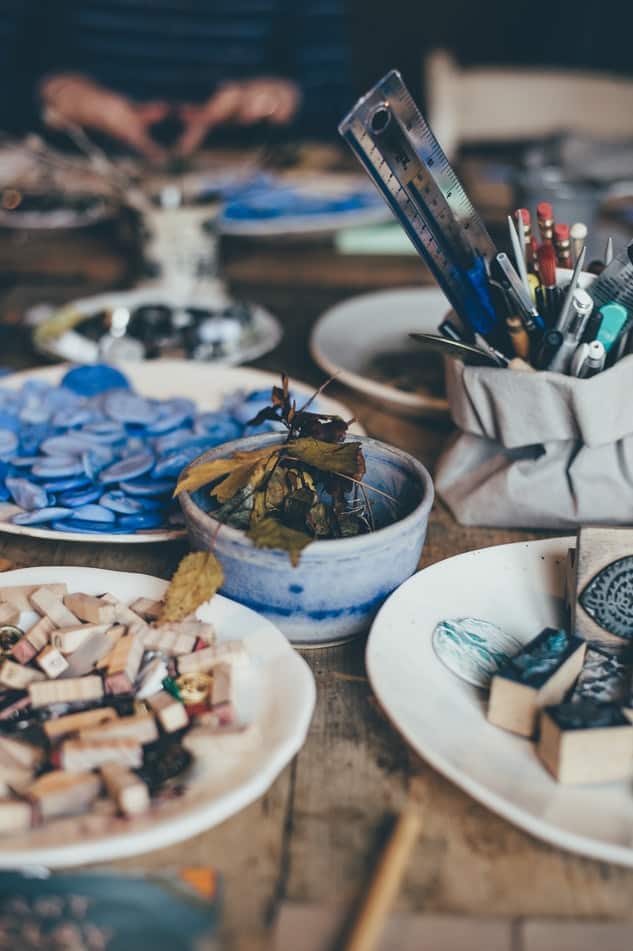
7. Money
The direct impact of minimalism is buying less stuff. More often than not, buying less also means spending less, thus creating more cash.
Recommended Read => Minimalist Wallets for Men
Beyond buying new things, minimalism can be the catalyst to downsizing your life (more on that later), which can have a significant impact on your financial situation.
8. Self-Awareness
Minimalism forces you to evaluate what you want, which means you get to learn more about yourself. You’re more aware of your talents and shortcomings, as well as your interests (without influence from others). When you strip all of the excess out of your life, you have no choice but to be honest with yourself.
9. Contribution
Perhaps one of the most transformative things you can do is serve and help others. Living simply will free up your capacity to give back.
This could mean providing emotional support to a close friend, volunteering to plant trees, or actively participating and helping at your kid’s school.
When you’re no longer weighed down by the clutter of life, you’ll find that you can do so much more of the good things.
10. Time
The recurring theme of most of the benefits so far is time. Minimalism, if used well, will give you back time.
If we’re lucky and live till we’re 100 years old, we have 36,500 days. That’s not much time if you think about it. Yet, we rush through life accepting careers that don’t light us up, relationships that drain us, and purchases that put us under immense pressure.
Being intentional gives us a chance to blow everything up, and design our life using a blank canvas, so we can ultimately have more control over the days we have left on Earth.
11. Beauty
As I mentioned at the beginning of this post, minimalism was initially a term used to describe design concepts. It’s because achieving simple design is harder than it looks—but the results are often beautiful.
Put it this way, if you’re trying to sell a house, do you leave clutter in all of the rooms? No. That would deter buyers as they would find it hard to visualise living in your house with all of that mess. It’s universally understood that uncluttered environments are attractive.
Minimalism gives space to your environment. More space in your closets, surfaces, vehicles, desks, home screens. Everything starts to look aesthetically pleasing without clutter.
12. Clarity
One of the greatest benefits of minimalist living is the clarity it provides you. We’ve already mentioned a few examples of clarity in this list, whether it’s self-awareness, time, relationships, independence.
Who am I kidding, every benefit on this list is an example of increased clarity as a result of applying minimalism! So if you’re feeling confused, directionless, overwhelmed, burnt out, minimalism could be your cure.
Suggested Read => Minimalist Backpacks
13. Energy
With clarity comes energy.
When you know what’s important to you and dare to protect your priorities from clutter, you’ll have more energy about life.
You’ll have more energy to make the hard decisions you’ve been putting off. You’ll have the energy to start some healthy habits, and you’ll have the energy to pursue work that makes you happy.
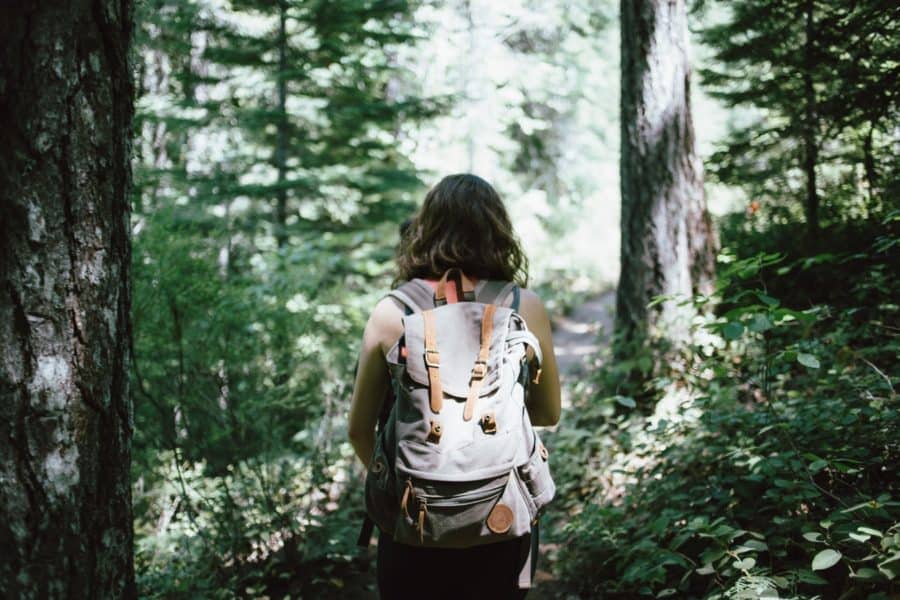
14. Health
Many of us put off health because we convince ourselves that we don’t have the time or the energy to prioritise it. When you remove clutter from all areas of your life and define what you want, you quickly realise just how important your health is. If you’re feeling so peaceful and grateful now, wouldn’t you want to keep that going for as long as possible?
15. Fun
Similar to the point of freeing up time to be creative—minimalism can also free up your capacity to have more fun. I mean engaging with your closest friends and family in a game or going to a live performance or playing with your pet for 45 minutes without feeling guilty.
Life doesn’t have to be so serious, and paring down your things could be the ticket to bring your inner child back.
16. Eco-friendly
Nothing hurts the planet’s resources more than excessive consumerism. Minimalism naturally rejects consumerism and having more people seeking and having fewer things would only be a plus for the environment. In fact, the eco-minimalism lifestyle is picking up momentum as a way to tread lightly.
How to measure minimalism
I’ve just shared 15 benefits of minimalism. But I have a sneaky suspicion you’re already at least somewhat aware of the value of minimalism.
This is an important moment in this post because if you don’t fundamentally believe that you need minimalism in your life, you’re going to struggle to implement any of the suggestions.
Minimalism sounds great. But are you willing to make time to think about what’s important and what isn’t important in your life?
I’ve spent years writing and reading about minimalism, conversing with people about decluttering, and getting feedback from our readers.
The recurring theme I see is that people don’t believe they’re minimalists. I see statements like:
“I’m an aspiring minimalist.”
“I’m transitioning to becoming a minimalist.”
“I’m not quite a minimalist.”
“I’m not there yet.”
We have an identity issue.
The problem with minimalism is that the definition is vague, the lifestyle is vague, and therefore, people don’t feel comfortable identifying themselves as a minimalist.
In all these years of being a minimalist I’ve only met one person in real life, not the internet, that told me they were a minimalist. It almost knocked me off my feet! Shout out to my friend Victoria.
Meanwhile, I’ve met many people who confidently claim to be a writer, or a vegan, because there’s a clear definition of those identities.
See the difference between people like myself and my friend Victoria and “aspiring minimalists” is that we dare to call ourselves minimalists. It’s with this belief that you start not only acting like a minimalist, but you feel like one too.
If you’ve read and watched an endless amount of content about minimalism and are still not getting what you desire from the lifestyle, consider owning the identity.
You are a minimalist when you say you are. Watch how your actions will follow. We can all benefit from a bit of audacity and delusion to get started on a brand new journey.
So repeat after me, “I am a minimalist”.
Are you inspired now? Good. Let’s do the work.
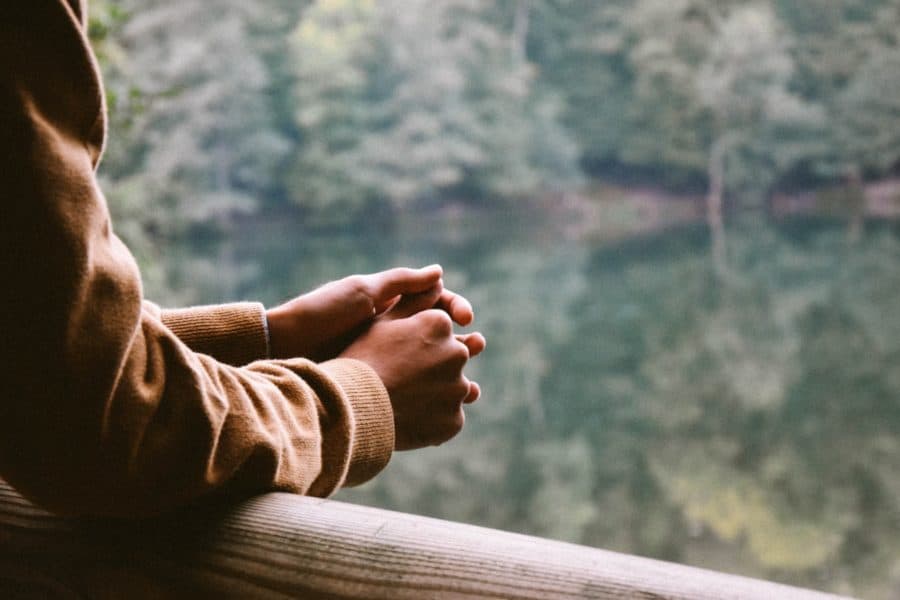
Becoming a minimalist starts with your home
As we shift gears into the “how” section of this post, I think it’s natural to start with our most valued environment, home.
Your home is a sacred space for you to be your complete self. Over time, your home becomes an extension of who you are.
Your home reflects your smell, the concoction of what you cook, your sweat, your perfumes, cleaning products, plants, babies, pets, all form together to create an odour that represents home.
Every item you own in your home has a story. Pictures on the walls, dining room table, to our bedsheets, shoes and books—they are things you stand behind because you chose them.
Your home is also a place where you have your worst experiences. It’s where families fall apart, where arguments happen, where you receive phone calls about a death of a loved one.
Nothing is hidden at home. It’s where you experience the ups and downs of life and everything in between.
With home being such a sacred place, it has incredible power over how you feel about yourself. Most of the time, without you even knowing!
Physical clutter weighs you down and makes you work harder to face daily decisions. Toxic products lurk in the background, affecting the health of you and your loved ones.
Each week, your home generates avoidable waste because you don’t have the right systems in place. Lastly, the products you bring into your home have cost the lives of humans and animals.
On the surface, it doesn’t feel like your home is broken. After all, you’ve created your environment. So if your home is broken, it means you are broken.
Your home reflects who you are. You learn a lot about someone by looking at their environment.
Creating a home is one of life’s most personal projects. It’s a place where you call all the shots. You decide what you bring in, where things go, and how it feels.
That’s where the power of minimalism comes into play. You get to hit reset and recreate a home that represents not who you are today, but who you want to be tomorrow.
If you live in a shared space with family or roommates who aren’t minimalist’s (highly likely), then focus your attention on owning your little space of the home. Make your bedroom your clutter-free sanctuary.
Listen: How To Encourage Minimalism Without Being Pushy
Before you jump in and start excitedly recreating your home, you need a plan.
Be aware of these decluttering obstacles
Have you tried decluttering an area in your home before? It’s hard work!
When I observe people trying to declutter, I see an initial burst of enthusiasm to get started. You dive into your home office, aggressively pulling things off shelves, surfaces and into storage. It appears that nothing can stop you.
Then you discover the very first iPod you received as a Christmas present ten years ago. Clearly, you don’t need it now, but you have a lot of fond memories associated with this device.
Maybe there’s some music on there? Let’s have a quick look!
The next minute, you’re reminiscing on the music you used to listen to on your iPod and a good 60 minutes passes by before you realise you have more decluttering to do. Only this time, you’re not as inspired, and you ultimately stop your session to get some food.
For you, it could be the iPod. But it could also be a photo album, a set of your favourite DVDs. Or it could be things that you don’t know how to discard.
There are so many obstacles blocking you from doing the work of decluttering. And that’s why it’s so easy to get discouraged unless you have a plan.
Here’s our two-part framework to minimise (including a worksheet)
We use a simple two-part framework when decluttering any space.
The first part is using a set of questions to determine whether you should keep an item or not.
Part one: questions to ask yourself when decluttering.
We had a great conversation about creating your personalised decluttering questions. However, since recording that episode, I came across an article with some excellent questions to help you make decisions.
To quickly summarise the post, here are Mandi’s ten questions to help you declutter:
- Is this item something I use regularly?
- If not, is it something I love?
- Am I keeping this out of obligation or expectation?
- Am I holding onto this because I think I should love it?
- Am I saving this just in case?
- Do I have multiples of the same thing?
- Could something else I own do the same job?
- Am I holding onto a broken item to fix it one day?
- Is this item worth the time I spend cleaning/storing it?
- Could I use this space for something else?
Make sure you check out Mandi’s article as she explains the reasoning behind each question.
If you’re struggling to decide whether to keep something or not, apply the most relevant questions to get you unstuck.
Part two: write down all of the items and determine their destination.
One of the biggest obstacles to decluttering is not deciding whether to keep something. It’s figuring out what to do with an item you want to discard.
Nothing kills decluttering momentum more than feeling like you’re creating more mess with things lying around the room that you don’t know what to do with. Or worse, you develop clutter in your car trunk or dump everything in storage.
Lastly, you want to make sure your decluttering efforts are not contributing unnecessary waste to our environment.
So with that in mind, you must establish destination paths before you start discarding.
Destination paths are simply routes your items take as they reach the end of their life cycle with you.
If you haven’t already, you can read about how we create destination piles in Minimalist Tips For Decluttering Your Home. Here’s a quick summary of the various destinations:
- For sale
- Giveaway
- Donation
- Upcycle
- Rubbish
- Scanning
- Sentimental
- Recycling
- Not my decision*
*I added in this pile because often when decluttering, you come across other people’s things which unfortunately you can’t decide on without their consent. If it’s someone else’s belonging, put it aside for them to deal with it later.
Now that you know the potential outcomes of each thing you decide to get rid of, you can start writing your list.
To make it easy, I’ve created a worksheet template you can use when decluttering. It has a table for you to write down everything you plan on discarding and all of the potential destinations.
All you have to do is write down the item you plan on discarding, and then tick the relevant destination. At a glance, you’ll be able to see all of the items you need to giveaway, upcycle, scan etc.
So before you touch anything in an area, run all of the things through the worksheet. Then when you start moving things, you’ll be more efficient because you’re merely following a plan.
Effective decluttering, at least in my experience, is less about frantically moving around trying to make decisions based on whether something sparks joy or not, and more about methodical planning, then moving quickly to execute.
It’s a far more pleasurable experience and is also less daunting. You can use the worksheet at any time in any room, with little friction to start.
I also find you’re far more objective and less romantic about your things walking around your house with a pen and pad. You feel professional. It sounds silly, but any little mind trick to get moving counts!
Choose a room and start
Now that you have a framework, start. Move as quickly or as slowly as you like. But remember, you’re a minimalist now, so any excess clutter in your environment should feel pretty motivating to deal with as soon as possible!
Some people suggest you declutter by category, others say by room. Ultimately it doesn’t matter as long as you get started and feel progress. And if you feel emotion and nostalgia with some things you’re letting go of, feel those emotions.
I came across a comment in a minimalist living Facebook group that really resonated with me. The commenter said:
I grew up in a time when we were taught, “there’s still good in that”. I reconciled with this thought to, “It has already served me, and now it can serve someone else.”
I love it! Take a moment to thank your things for their service, and wish them well in their new stage of life.
Bye-bye things. Hello, simplicity.
How to apply minimalist living to your finances
Okay, so now that you’re on a roll applying minimalist living to your home, it’s time to expand your intentionality to your finances.
You can have the clearest space in the world but still suffer from the clutter of debt, bills and monetary strain.
I’ve spoken previously about how I believe debt is the worst form of clutter. Debt limits your time, as you’re dependent on working more to support your repayments.
So check out our post and podcast about the concept of minimalist money. To give you a snippet of what to expect, it comes down to again, planning.
We use tools like a debt tracker, a dynamic monthly budget, as well as a process of determining your minimum viable income (MVI), so you can push yourself to use the principles of minimalism to live frugally, and get on top of your finances.
Beyond cash flow and debt, intentionality also applies to your pension/superannuation plan. It’s the process of ensuring that your funds are consolidated and that you know how your fund is performing. And if you’re vegan like us, is your fund screening their investments for cruel and unsustainable practices?
Your bank statement should reflect your minimalist lifestyle. Scrutinise every purchase and even run the ten questions mentioned above to things you plan on buying.
Use minimalism to downsize your life
After decluttering your physical and financial environments, the next level of minimalist living is looking for ways to downsize your life.
As you go deeper into your minimalist journey, the idea of small living instead of large living becomes more appealing. You start to question your more significant commitments such as your employment, property and vehicles.
Can you be like the guy below who ditched his well paying corporate job to work part-time at a grocery store?
Perhaps you could push yourself to go down to one car, or better yet, go car-free! Maybe you could sell your house or break your lease to live further away, or in a smaller space.
Watch a couple of episodes on people downsizing to tiny houses to see how they’ve challenged their idea of success.
In my experience, these “more courageous decisions” can be life-changing, and often makes you wonder why you didn’t do it earlier.
Minimalism and mindful consumption
Being a minimalist doesn’t means you completely stop consuming and buying things. It just means you’re far more intentional about what you bring into your life.
As I mentioned earlier, your bank statement should reflect your minimalist values. Over time, I’d argue that it becomes pretty easy.
What will likely sneak up on you is receiving gifts, or people trying to give you something for free. Being a minimalist also means setting expectations with those around you so you can all live in harmony.
Read more: A Minimalists Guide To Gifting Experiences (90+ Ideas)
I can’t tell you how many times I’ve said no to clothing, tools etc. from my family since being a minimalist. It’s in our nature to be polite or to take something simply because it’s free.
I would challenge you to also think in reverse when offloading your clutter to your family. So many of us put a burden on our parents and siblings without knowing. Just because they don’t consider themselves to be minimalist’s doesn’t mean you should willingly contribute to their clutter, of course, unless that’s what they truly want.
The same goes for discounts and sales to entice you to buy more than you intended. I feel like we talk about this in every post about minimalism, but it’s worth repeating, keep a wishlist of things you need to buy. It will save you from making impulsive decisions.
Listen: What Is Slow Purchasing? (And When To Use It)
Lastly, if you’re interested, I encourage you to think not only about what you consume, but how things are made and distributed. Question the whole supply chain from sustainability to fair working conditions, to animal exploitation, and toxic chemicals.
Avoiding such practices will make you appreciate what you decide to bring into your world so much more.
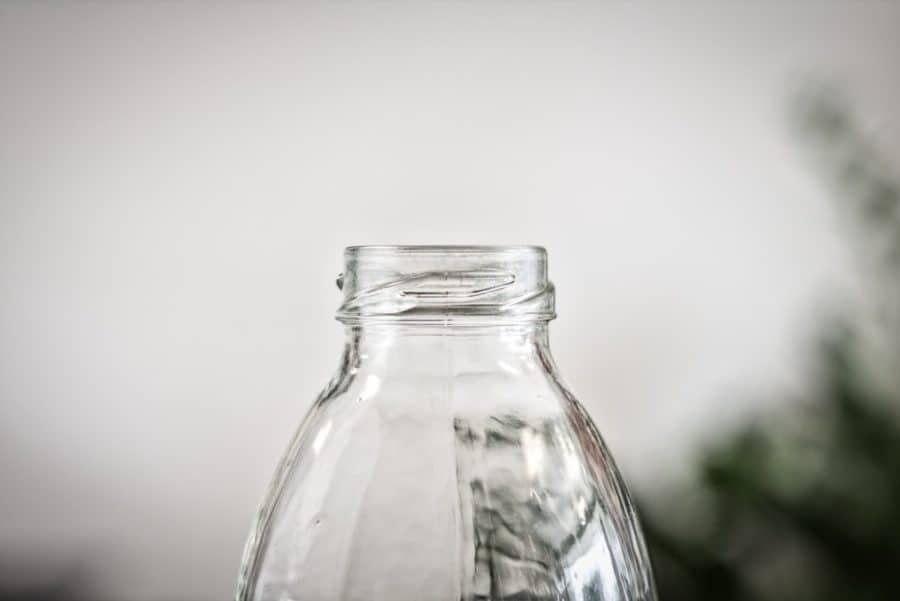
How to be a minimalist: parting words
This is something I wish I could go back and tell myself when I started my journey towards a minimalist lifestyle. Don’t take yourself so seriously.
You came into this world by yourself, and you’ll leave by yourself. All of the stuff in between is important, yes, but it’s not that important.
You can and will likely change. Your values will change. You might consider yourself to be a minimalist today, but in six months, you feel like you’ve let clutter and chaos back into your life. That’s okay. Everything is fixable, so there’s no need to beat yourself up.
Also, don’t get too caught up in the aesthetic that’s commonly portrayed about minimalism. Sure, you may be very visual, but try to be resourceful when recreating your style. If you’re not careful, you risk overspending to have a certain aesthetic.
Finally, minimalism isn’t just for rich white people. I know many families in developing countries drowning in clutter.
In fact, growing up poor, in any nation, can fuel a deep consumerist mentality as you get older. Scarcity kicks in as you develop “The More Virus”.
Be aware of your upbringing as it’s likely to appear as an obstacle in some shape or form in your pursuit of simplicity.
Alrighty, that’s it for this post. Thanks for making it this far. If you have any experiences you want to share about your minimalist living journey, feel free to leave a comment below.

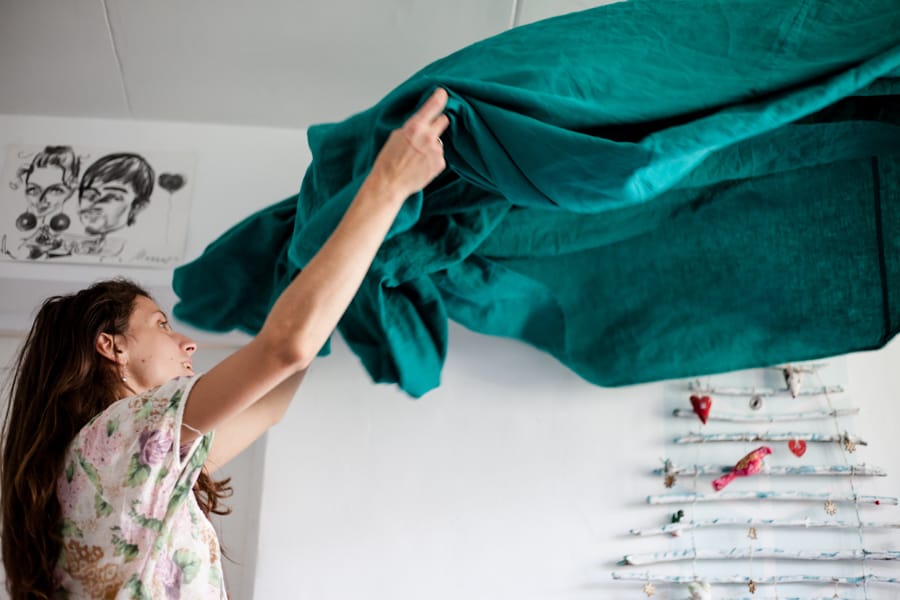
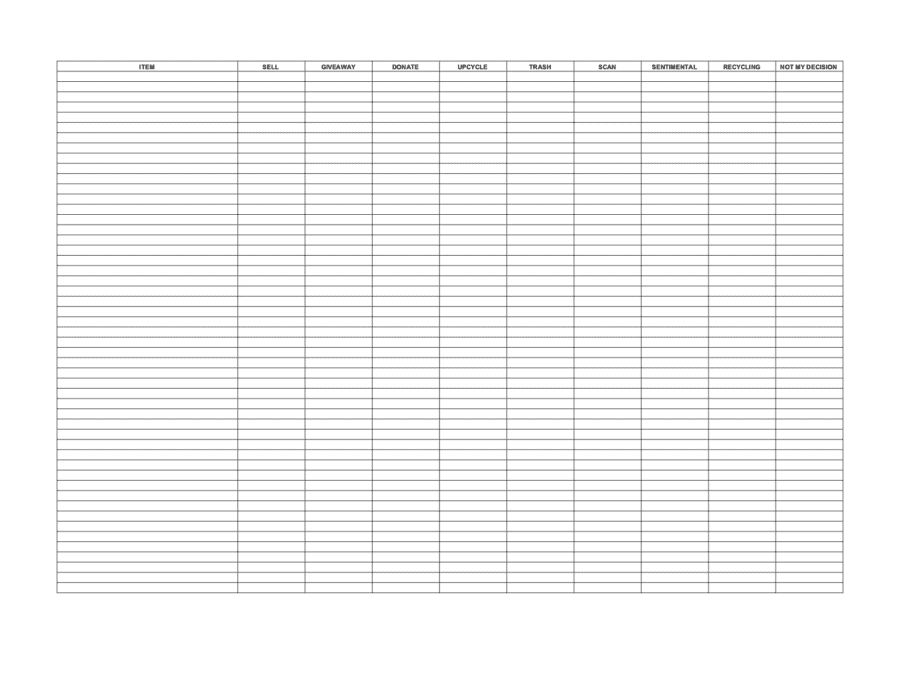
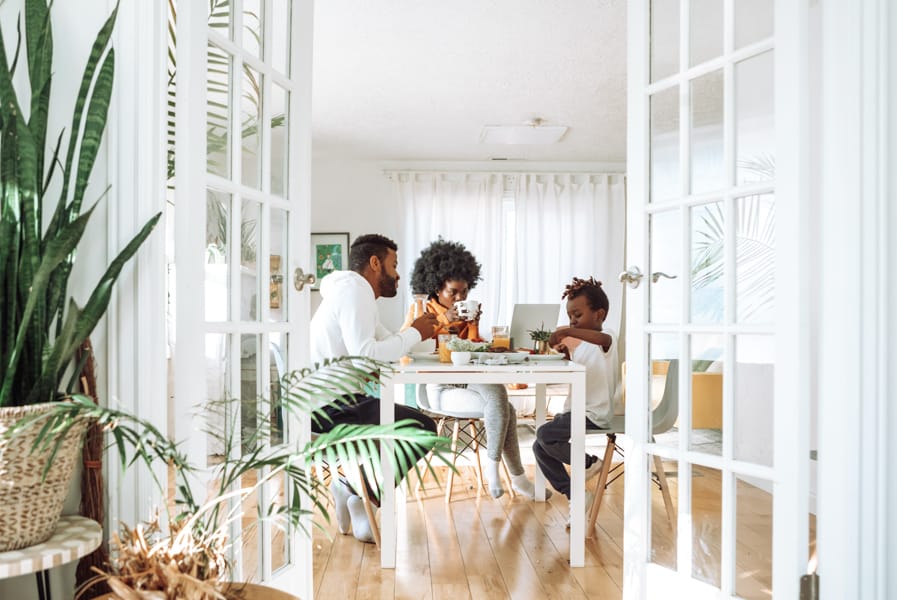
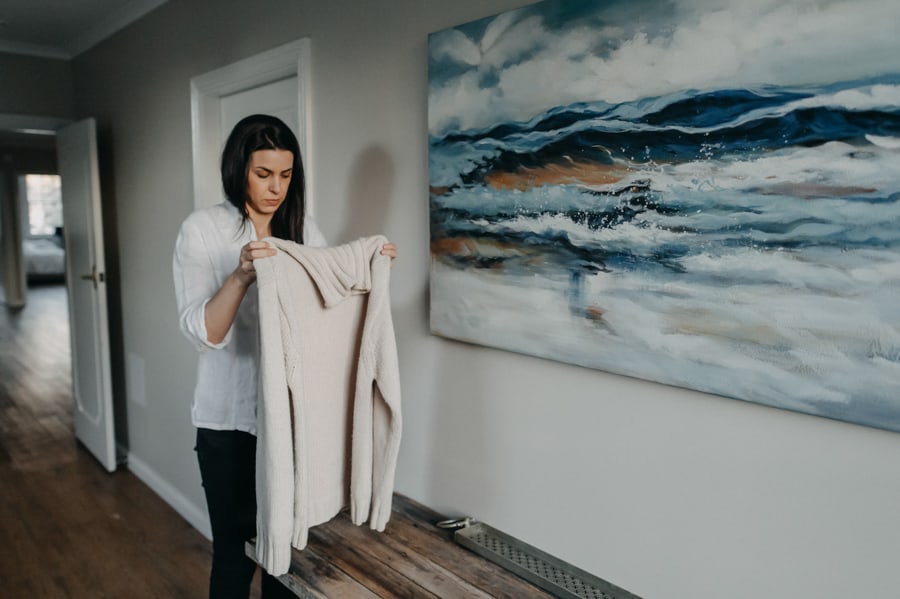
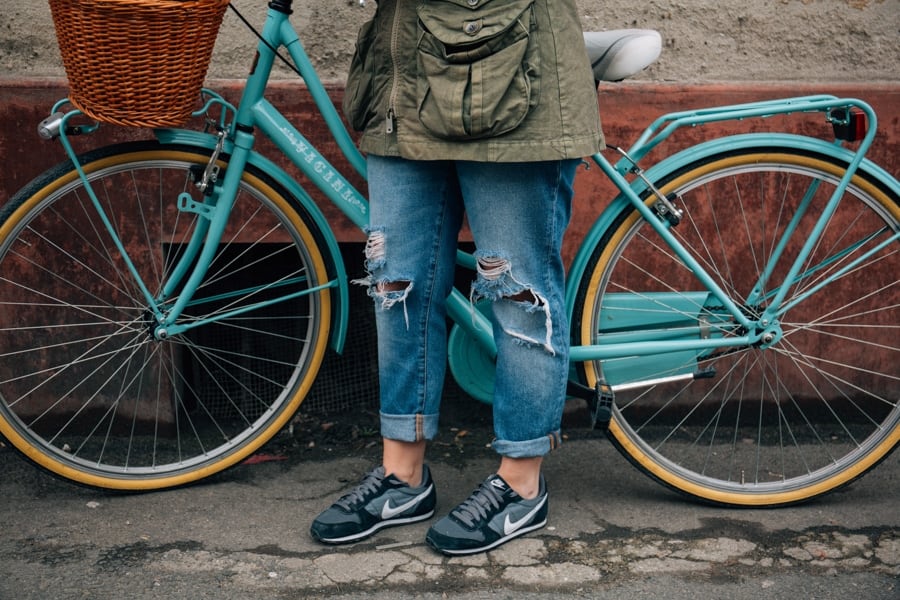
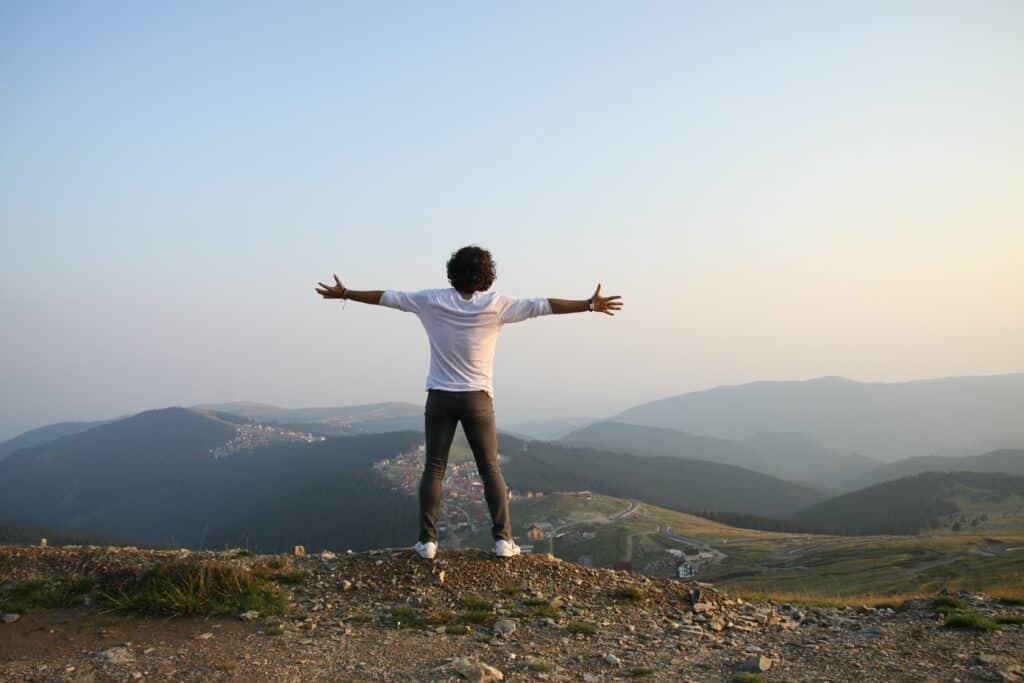
Loved your article. I’ve been downsizing for the past five years, following tiny house movement, camping Rv’s. Moving from 1 bedroom apartment to an efficiency in that same building) squaring off 8×10 area and everything I own in it. Purchasing all natural items & fabrics. Wood, glass, metal etc. Gave up work and have retired. Going from from car to bike, not always easy but very gratifying. It’s not the toys that you own that make you a winner, but being content with choices you make for yourself and others that make you a winner! Thank you for listening. Yours in awareness Sandy
Hi Sandra, thanks for sharing. I enjoyed reading about how you’ve downsized, especially this, “It’s not the toys that you own that make you a winner, but being content with choices you make for yourself and others that make you a winner.”
As someone who rescues animals, the accumulation of donations and clutter and, well, the sheer number of animals themselves, has taken over my life since moving from a condo to a house. I am constantly feeling burdened by the thing that brings me the most joy – the pets in my life. I am fretfully overwhelmed at every turn, because keeping up with the leashes, collars, crates, cat carriers, etc. that I frequently need on hand is contradictory to my natural tendency to “de-clutter”. I followed your page a year+ ago when I went vegan (then went back to vegetarian, and found you again now that I’m vegan again) and followed for Masa’s recipes… I had NO IDEA how much incredible content you have, Michael! This article was deep and simple at the same time. I sent the article and your quote above about including family in discussions about your lifestyle, because I never leave my parent’s house without a bag of “goodies” and 9 times out of 10, I bring my mom goodies of her own… We both would benefit from a simpler, minimalist lifestyle and approach and I’m now on my second hour of exploring your articles. Thank you!
Hi Angie. Thank you for your kind words and Maša, and I are grateful to have you back! First of all, thank you for creating being so caring and compassionate with your work. I can only imagine how much clutter comes with supporting so many animals. As you’ve probably realised, it’s even more critical to pair back on other areas of your life so that you can pursue your act of service with clarity and purity. It sounds like you’re on a positive path. All the best.
Sensible post! I appreciate the true essence of minimalism being documented on this post. I am armed with the 10 questions to whether keep something or not. I have been on the path but I am not 100% sold on the items I still have. I came from poverty and I already been to to other end of the spectrum as far as acknowledging what kind of life I want to have has nothing to do with excess things. I feel that every mindless purchase I made was due to an unfulfilled wish, need or desire which intrinsically revealed a few tbings about myself. The time I bought more stuff was when I was in an unfulfilled relationship. The buying aspect of things was 1 thing that gave me some satisfaction. To be honest with oneself is the best route. We all have different reasons for doing the minimalism path. But we all connected on the less is more. Thanks so much. I’m a fan.
Thank you so much for taking the time to read and comment. It’s refreshing to see stories from someone who has experienced both sides of the spectrum and still sees value in a minimalist lifestyle.